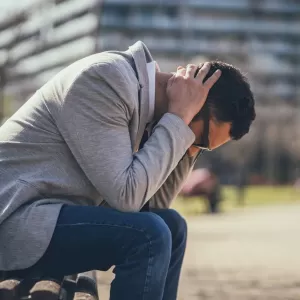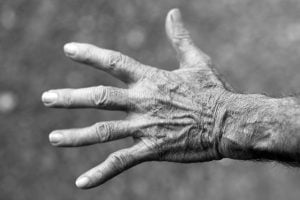Written by Dimitris Papadimitriadis , psychiatrist – psychotherapist.
The SARS-CoV-2 virus and the Covid-19 disease it causes are a huge challenge for people with anxiety disorders and especially for those who are in the obsessive-compulsive spectrum. It is important to remember that you have no reason to give in or to put off the great and ongoing effort you are making in order to prevent your compulsions.
Protection against the SARS-CoV-2 virus requires a very specific process, which should be managed as a separate and limited operation. It can and must be completely encircled and demarcated. It does not need to affect any other level of your daily behavior.
Nevertheless, it does not stop demanding more special management from you, compared to the average person. But, with your extensive experience in cleanliness, control and reassurance, you are better shielded against the pandemic than anyone else! With my suggestions that you will find below, I urge you to use this experience for the benefit of your own protection and for the benefit of your loved ones and others, to the extent that it really serves the purpose of this new challenge you are up against. Let these become an additional contract between you and yourself.
You need to remember that you are real and experienced fighters. Even if you do not believe it while reading this, you have been constantly winning battles against a phenomenon that surpasses even the coolest person!
The new virus spreads through droplets when we cough, sneeze or even talk, especially in closed placed. We know that the droplets do not stay in the air for too long, but they land on surfaces. From there, they are ingested by hand and when we touch the mouth, nose or eyes, the virus can enter the body and continue its journey.
This means that you have no reason to avoid other people in the open public space, as long as they do not cough or sneeze and as long as you keep a distance of one and a half to two meters. The most important thing you can do to protect yourself and others is to keep your hands clean and to wear a protection mask when in closed, crowded places.
- Wash your hands before eating and before touching your face, as appropriate (see below), with soap and water or with an alcohol-containing gel.> 60%, but only for half a minute and no more. Indicatively, you could sing the national anthem twice in order to reach, but not to pass, the required thirty seconds. Be sure to avoid re-washing or using extra gels outside of this time frame, with the confidence that the discomfort and anxiety you might be feeling will subside in the next few minutes. Despite the uncertainty that potentially overwhelms you, this duration is scientifically proven to be enough and you have every reason to acknowlege this truth.
- For an effective cleansing, wash your hands and clean once between the fingers of one hand using your fingers of the other hand and vice versa. But only once. Clean each thumb separately with a rotating motion and the palms inside the skin folds with your fingertips. Again just once.
- Keep nails short and use nail polish remover if you tend resort to repetitive behaviors such as nail biting. Keep your hands busy (eg with a rosary) to immediately replace this habit.
- Keep with you an antiseptic alcohol gel for your hands so that you do not feel stressed when you think that you may have touched infested surfaces in the public space. But do not use alcohol antiseptics too often, or other cleaners such as chlorine solutions (eg bleach) to clean your hands. Excessive use beyond this limit will disrupt the normal flora and continuity of your skin, leaving wounds – that serve as open gates for all kinds of germ, including SARS.
- Try to avoid touching your mouth, nose or eyes with unwashed hands – something we all do unconsciously on average about 15 times an hour, or even more often when we are stressed. Hold on. keep your hands busy (eg in your pockets, or with a rosary) or wear sunglasses and a protective face mask if you do not have confidence in your hands when in public.
- Carry disposable tissues with you to cover your nose and mouth when you cough or sneeze. Dispose of used tissues carefully in a rubbish bin. Do not rush to dispose of them on the road or elsewhere in case you are anxious to get rid of them as soon as possible. In this way you ensure that you will not suffer with the obligatory thought that you might hurt someone unintentionally. Take a mental “photo” with a snapshot of safely disposing the paper towel, holding down details about the bin you used so that you can reassure yourself that you did it right.
- Do not share snacks from bags or cups in which others dip in their fingers. Ideally, avoid open food packages altogether and dispose your own after use to ensure that destructive or guilty thoughts do not invade you later.
- Avoid shaking hands or kissing in your public during greetings with others. Adopt an alternative greeting (for example with the elbows) and inform orally about it the other you meet. Keep a mental “photo” with the moment of your greeting as a reminder that you did not shake hands.
- Clean common surfaces and appliances that you touch or handle, such as your desk or mobile phone, with a specific sequence (e.g. clean these surfaces, eg. telephone devices -> hands) but without repeating a second time. Hand washing in the sequence and duration described above must be completed. Use kitchen paper, water and soap to clean surfaces and appliances if they are waterproof, but the process should not take more than a minute in total. More time is totally unnecessary and you need to commit to this limit. If your appliances are not waterproof, use them with wahsed hands.
- Avoid church attendance and Holy Communion. But it is very likely that blasphemous or other obsessive thought with a religious content will intensify your discomfort. Pray at home, but only once and for no more than five minutes.
- Do not rush to interpret physical symptoms as being related to the disease. It is to be expected that in the area of stress you will experience several atypical symptoms, possibly some very similar to Covid-19, such as heaviness in the chest, shortness of breath or difficulty swallowing. You know your own, very personal, pattern for the usual psychosomatic symptoms you experience at times, so in the absence of fever you have no reason to worry. Contact your doctor and discuss about them.




